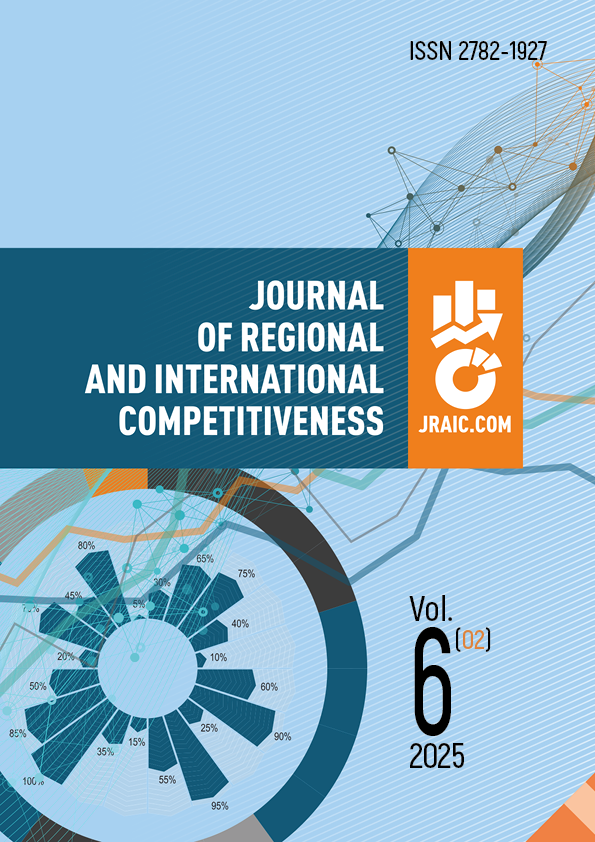The Russian Presidential Academy of National Economy and Public Administration (Ivanovo Branch)
Ivanovo, Ivanovo, Russian Federation
Ivanovo, Ivanovo, Russian Federation
The paper considers a number of cities of different categories, and the dynamics of the population of small towns in the regions of the Central Federal District. The authors overview the indexes and rankings of cities calculated in Russia by the state corporation VEB.RF, Expert agencies, SGM, ESG Alliance, and various companies. They analysed the urban environment quality index calculated by the Ministry of Construction of Russia, using the example of small towns in 17 regions of the Central Federal District with a population of 25-50 thousand people, 5-25 thousand people, and up to 5 thousand people in a relatively comfortable climate. The research dwells on MGIMO’2023 ranking on SDG 11 ‘Sustainable cities and human settlements’, the methodology of the RAEX rating consortium for ESG assessment of federal districts and cities of Russia. An analysis of the urban environment quality index calculated by the Ministry of Construction of Russia on the example of small towns in 17 regions of the Central Federal District, showed the following: the 15 small towns with a population of 5-25 thousand people (151 in the Central Federal District) have a range of scores for a conditionally comfortable climate 30. It indicates a significant difference in the level of comfort of living in small towns within the same region. The small towns with a population of 25-50 thousand people (there are 60 in the Central Federal District) have a range of points scored for a conditionally comfortable climate with a difference of more than 30 points is in the Moscow, Smolensk, Kaluga, Vladimir, Tambov, Tula, Yaroslavl, Belgorod, and Voronezh regions. There are only 16 small towns with up to 5,000 people in the Central Federal District. Hence, it is necessary to implement a special policy for the socio-economic development of small towns, including the development of their territories and infrastructure.
small towns; sustainable development; ESG agenda; sustainable development goals; rating agencies
1. Berendeeva, A. B. ESG ratings of Russian regions. (2024). Vestnik Ivanovskogo gosudarstvennogo universiteta. Ser. Ekonomika, (2), 7-18 (in Russian).
2. Berendeeva, A. B., & Berendeeva, O. S. (2023). Demographic and educational potential of small towns in the Center of Russia. In Problemy upravleniya social’no-ekonomicheskim razvitiem regionov Rossii v novyh realiyah: materialy Vseros. nauch.-prakt. konf. (g. Oryol, 30.05.2023–31.05.2023) / Min-vo nauki i vysshego obrazovaniya RF, OGU imeni I. S. Turgeneva; redkol.: N. A. SHibaeva [i dr.]. (pp. 517-526). Oryol: OGU imeni I. S. Turgeneva (in Russian).
3. Korobova, O. O. (2024). Formation of ESG management competencies as a factor of sustainable business development. Vestnik Ivanovskogo gosudarstvennogo universiteta. Ser. Ekonomika, (1), 42-52 (in Russian).
4. Berendeeva, A. B., Berendeeva, O. S., Budanova, I. A., Dmitrieva, L. V., Korobova, O. O. et al. (2024). The small towns in the socio-economic system of Russia, problems and prospects of developmen. Ivanovo: Ivan State University (in Russian).
5. Fauzer, V. V., Lytkina, T. S., Smirnov, A. V., & Fauzer, G. N. (2021). Sustainable development of small and medium-sized cities in the Russian North: review of works – approaches – practices. Korporativnoe upravlenie i innovacionnoe razvitie ekonomiki Severa: Vestnik Nauch.-issled. centra korporativnogo prava, upravleniya i venchurnogo investirovaniya. Syktyvkar. gos. un-ta, 1(1), 41-57 (in Russian).
6. Fauzer, V. V., & Smirnov, A. V. (2023). International and Russian approaches to studying the sustainable develop- ment of urban environment: From theory to practice. Ekonomicheskie i social’nye peremeny: fakty, tendencii, prognoz, 16(1), 85–102 (in Russian).




















